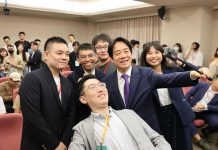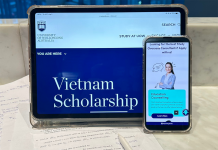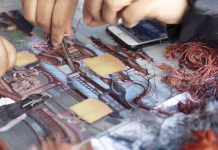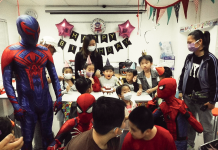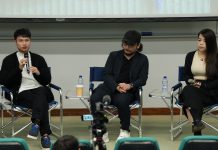Another Sai Wan district page on Facebook, Sai Wan Record, was founded in January 2014 by two former Hong Kong University (HKU) students Samuel Wong Chun-long and Grace Cheng Hoi-man. They started the project when they were still students, using funds from the university’s General Education Department, to enhance HKU students’ sense of belonging to the district. “It is like the university is isolated in the community,” says Wong.
The project has become less active now due to a shortage of resources. Wong and Cheng say that community bonding cannot be achieved solely by using online platforms as it is difficult to sustain a long relationship online.
“You need to see the person face-to-face, in order to have a deeper impression of him or her,” says Wong.
However, even though they want to organise more events with other community groups, their main problem is their lack of money. “There are too many constraints for us, like no money, no people and no time,” says Cheng.
The lack of resources is a problem for many online pages, but another difficulty is a lack of experience in how to transform a virtual community into a physical community. It is a problem Lo Yan-chi and Or Wing-man, the two founders of Dialogue in Tin Shui Wai have also grappled with. “Things are useless if they only happen online,” says Lo. To tackle the problem, the pair collaborated with the “Tin Library” a Tin Shui Wai community development project of the Young Women’s Christian Association (YWCA).

Chan King-cheung, the librarian of Tin Library explains that non-governmental organisations can play a role as coordinators between the online world and society. “They may not be very good at organising an event or bringing things back to the real world…we have staff and time to make the process smoother,” says Chan.
The Tin Library regularly gathers people to chat under a tree and share their own stories next to the Light Rail station. Chan stresses that although the online world is good for bringing people together, there must be activities held in the physical world for there to be real and lasting interactions.
Wong Hung, an associate professor in the Department of Social Work at the Chinese University of Hong Kong suggests there are three elements in bonding to create a community: being connected, belonging and solidarity. “The internet is doing the first step of connecting people,” Wong says. “But it is hard for that to lead to belonging.”
“Whether online communities can organise a large group of people to change a district, change a government policy, we have to wait and see,” says Wong.
Edited by Julian Ng











